Basic Math Skills Easy Addition & Subtraction Worksheets for Ages 5-8
9 filtered results
-
From - To
Discover our engaging "Basic Math Skills Easy Addition & Subtraction Worksheets" designed for young learners aged 5-8! These thoughtfully crafted worksheets provide a fun and interactive way for children to master essential math concepts. With a variety of activities focusing on both addition and subtraction, kids will build their confidence while enhancing their problem-solving abilities. Each worksheet is age-appropriate, ensuring that children can progress at their own pace. Perfect for home or school use, our resources are perfect for reinforcing classroom learning. Unlock your child's potential and watch them thrive in their math journey with our easy-to-understand worksheets today!
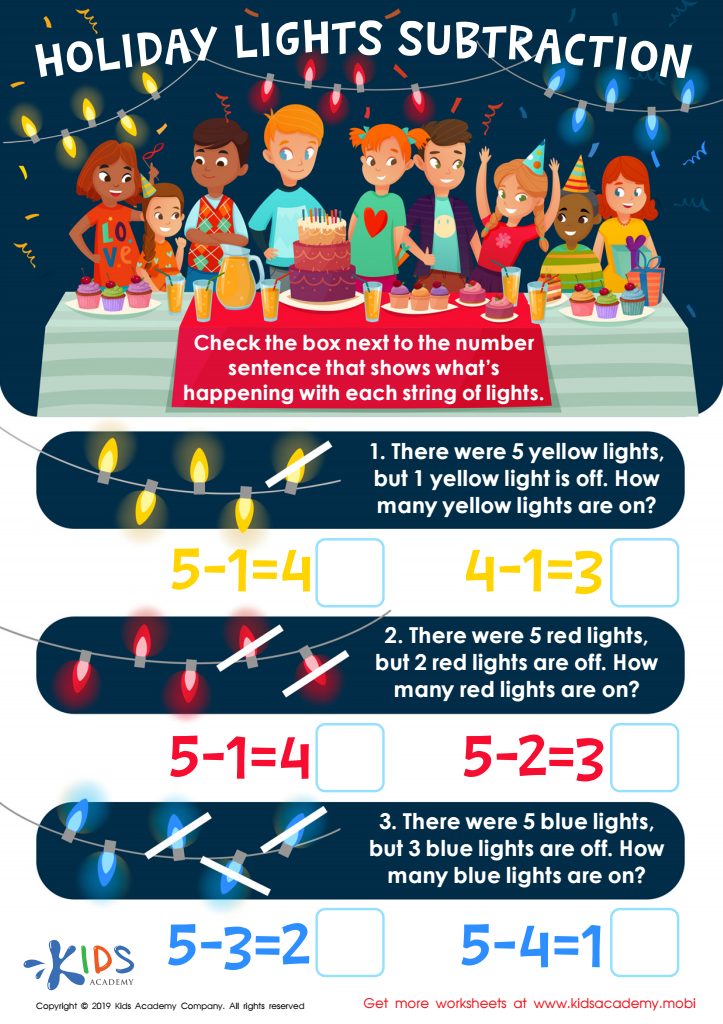

Holiday Lights Subtraction Worksheet
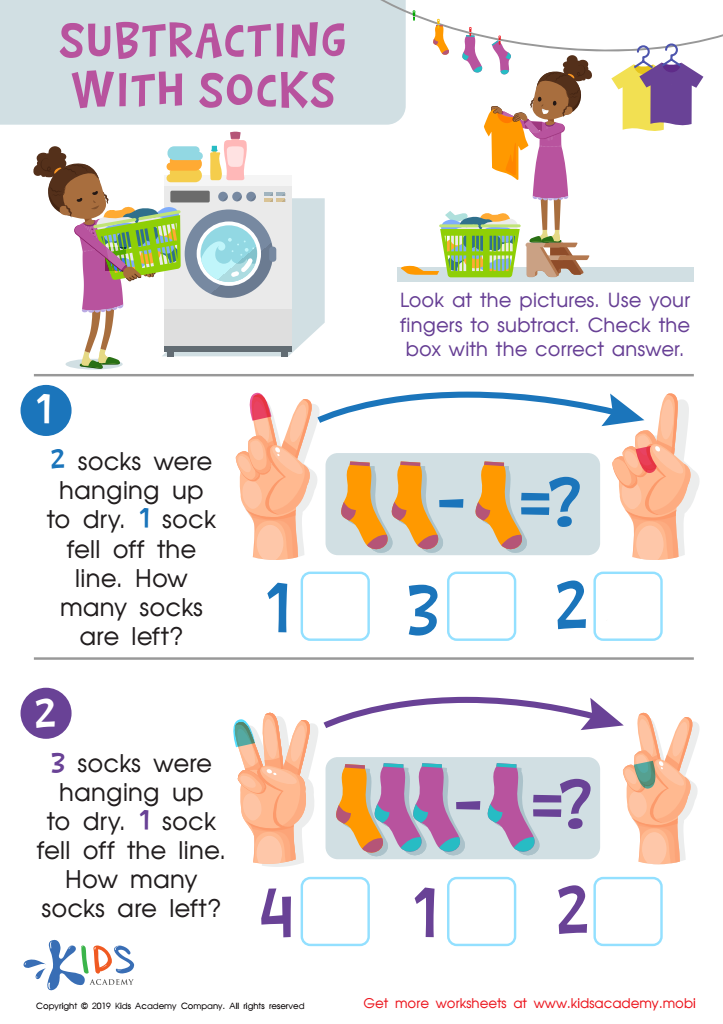

Subtracting Socks Worksheet
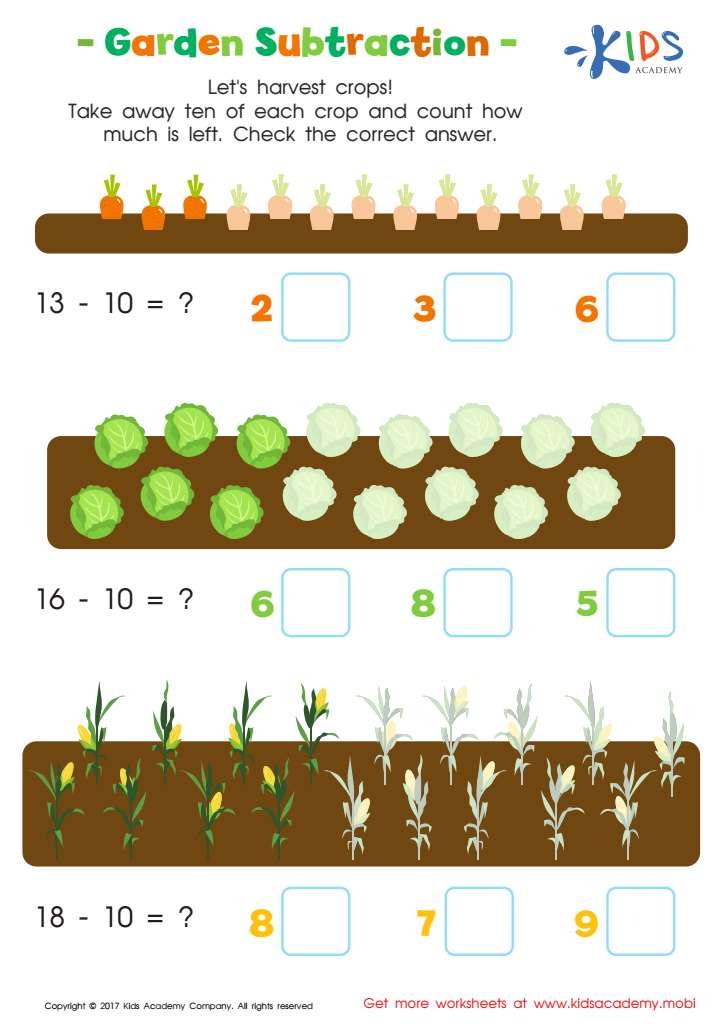

Garden Subtraction Worksheet


Counting Seedlings Worksheet
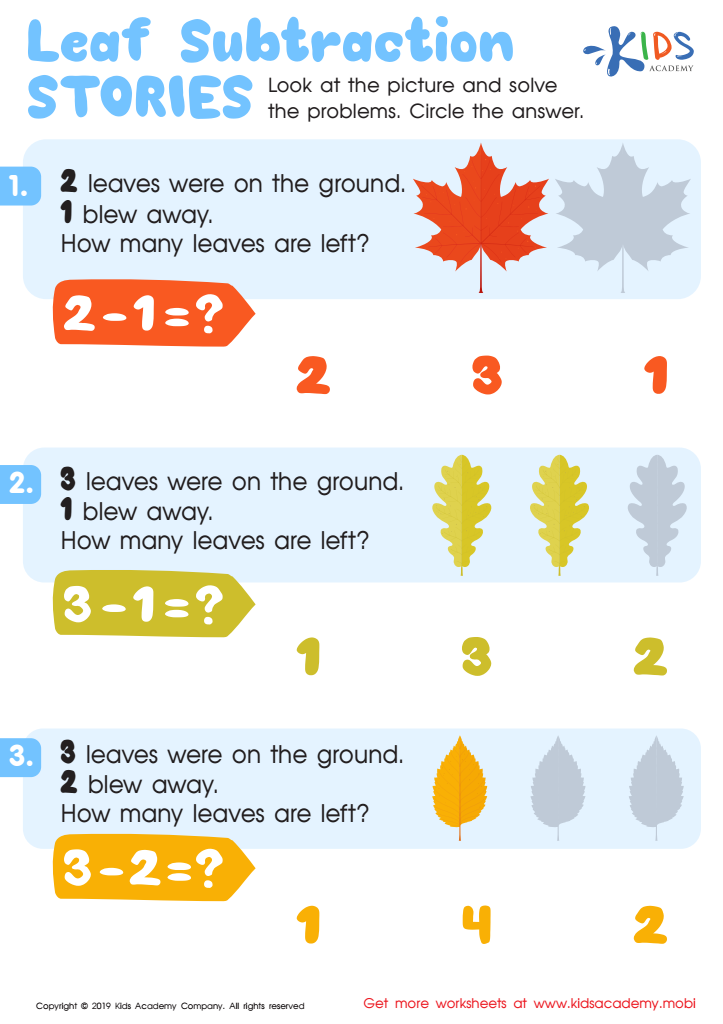

Leaf Subtraction Stories Worksheet
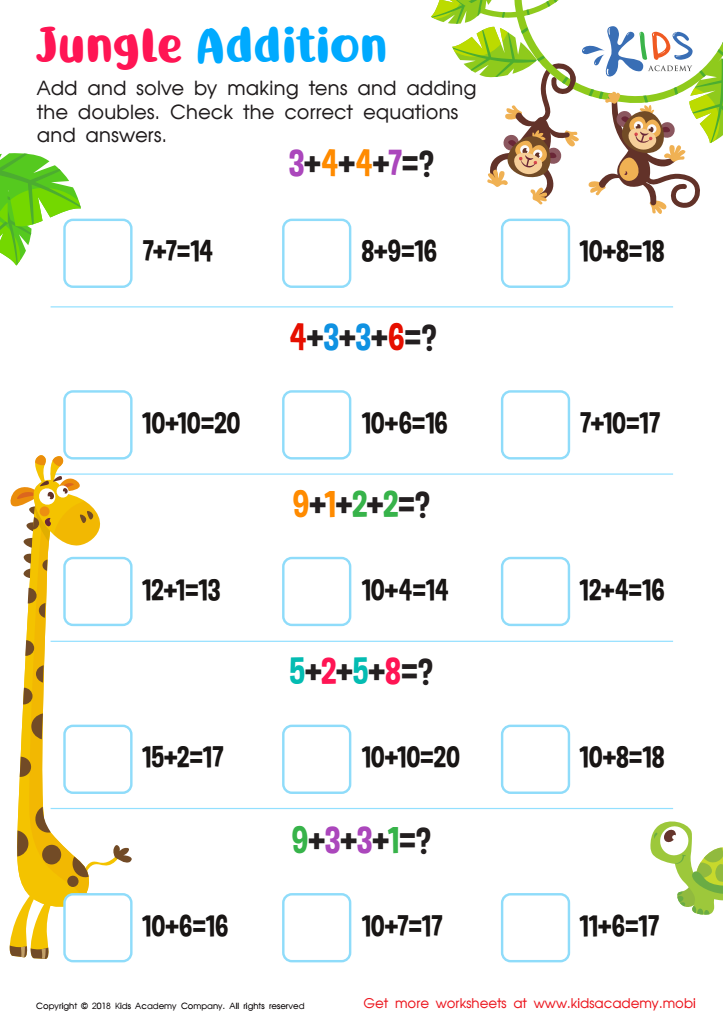

Jungle Addition Worksheet
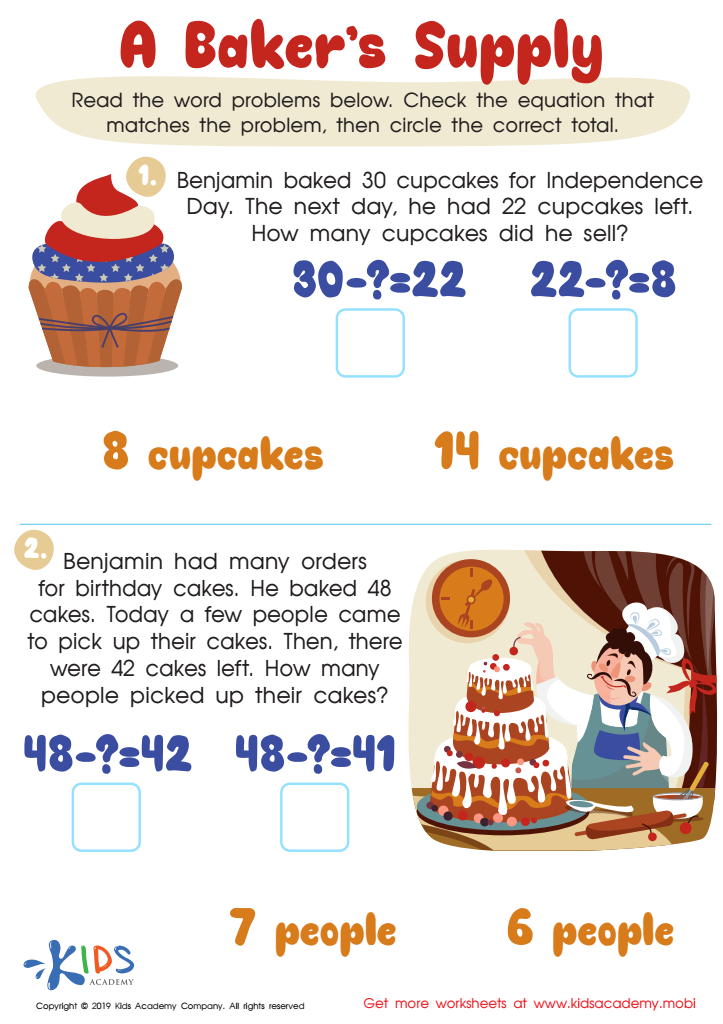

A Baker's Supply Worksheet
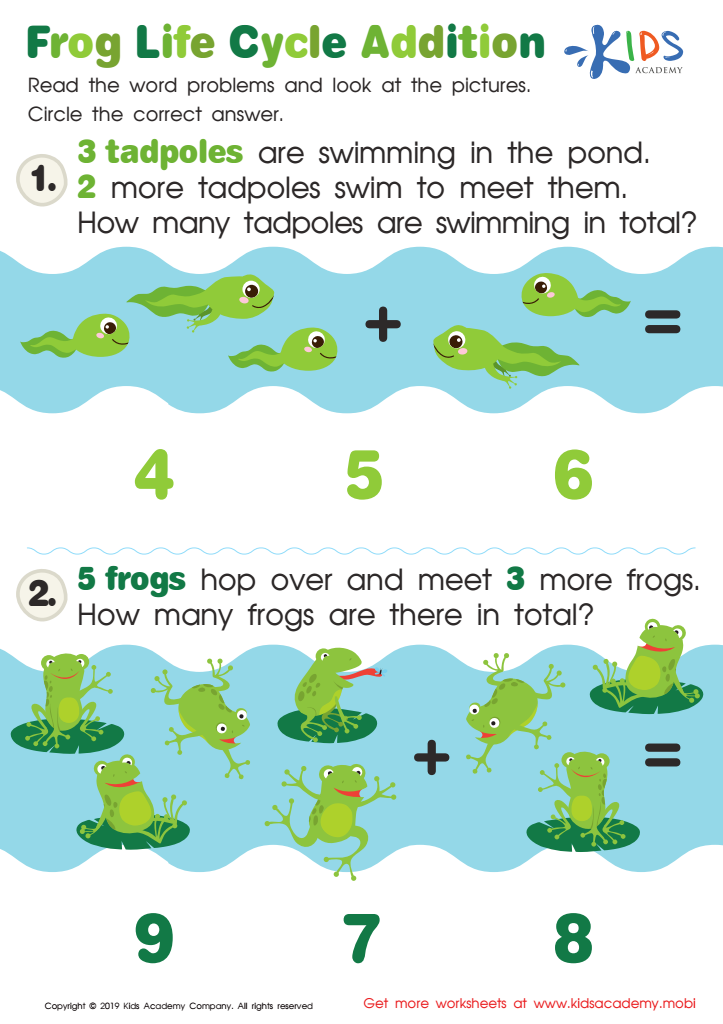

Frog Life Cycle Addition Worksheet
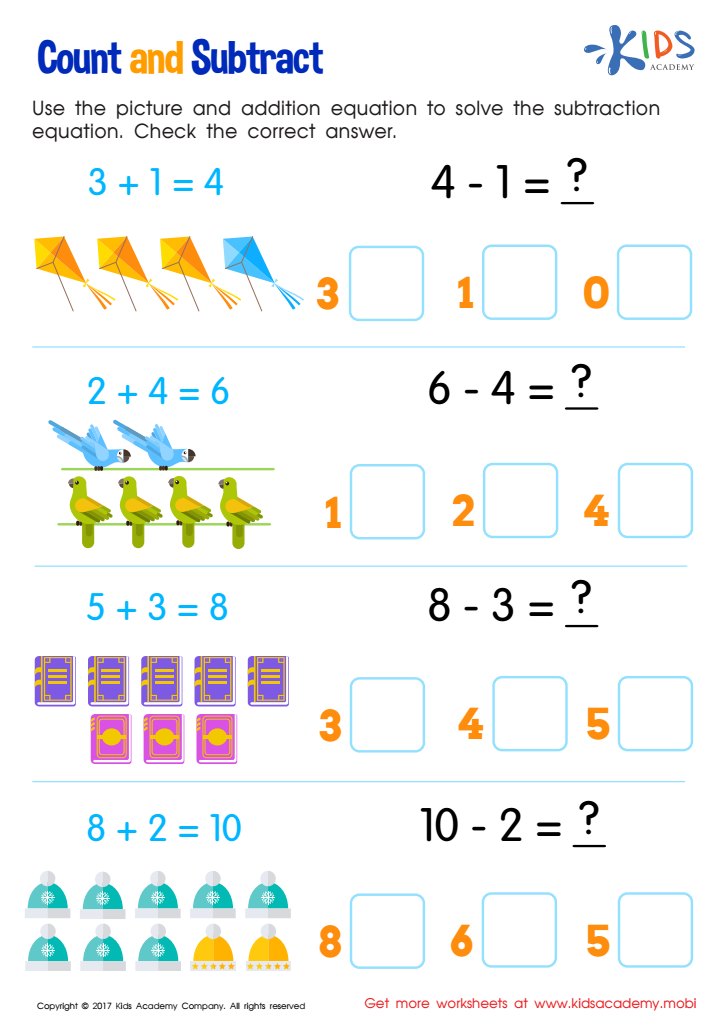

Count and Subtract Worksheet
Parents and teachers should prioritize Basic Math Skills, particularly easy addition and subtraction, for children aged 5-8, as these foundational skills serve as the building blocks for future academic success. At this age, children are highly receptive to learning and grasping new concepts, making it an ideal time to cultivate mathematical understanding.
Basic addition and subtraction help develop critical thinking and problem-solving skills. Proficiency in these areas enhances cognitive abilities and boosts confidence, allowing children to approach more complex math concepts in later years without fear. Furthermore, math skills are essential for daily life activities, including budgeting, shopping, and time management, making early mathematical competence invaluable.
Additionally, strong foundational skills in math contribute to improved performance in other academic subjects. Many fields, including science and technology, rely heavily on mathematics; thus, early exposure gives children a competitive advantage.
By supporting the development of addition and subtraction skills, parents and teachers can foster a positive learning environment, encourage perseverance, and instill a lifelong love for math. Ultimately, investing in these essential skills lays the groundwork for a child's future, both academically and personally, making it crucial for parents and educators to engage with this learning process.

 Assign to My Students
Assign to My Students
















